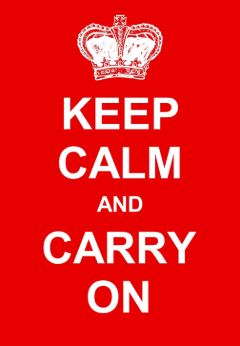With the recent events in Southern California, many of you may know people seriously affected by the fires. For that reason, I received a suggestion to post an article on leadership during a crisis.
One of my favorite activities in the world is backcountry skiing (actually I do this with a snowboard).
If you are not familiar, “backcountry” means hiking mountain peaks before skiing them.
Advocates say they prefer to “earn their turns.”
I’ve spent time in the Tahoe backcountry since 2005, and it has taught me many valuable lessons.
But one lesson in particular is burned into my memory banks.
About 10 years ago, my good friend broke his leg and tore his MCL and ACL simultaneously—at the very top of the mountain.
Thankfully, the weather was warm, it was still early, the snow was soft, and there were a few other skiers in the area that saw us and rendered aid.
In many ways, these were the best possible conditions to have an accident.
But it still took nearly 4-5 hours of slow, painful, and strenuous work to get him down. Mostly by him scooting and crawling in pure desperation.
He shared a stinging but powerful lesson with me nearly a year later when I asked him how he managed to drag himself for miles in the snow while injured.
“You looked panicked,” he said. “What I needed was calm reassurance.”
That statement helped me enormously several years later when my wife was faced with nearly the same situation (I wrote a full post on that day here). She broke her ankle and had to walk/ski for nearly 5 hours in deep snow.
Watching my wife spin wildly upside down during a ski crash in a remote location on a steep slope was gut wrenching.
But the first thing I thought of were my friend’s words. I was determined to stay calm and approached this situation much differently.
Our group gathered at the base of the slope to assess the situation, review our possible options, and make a plan.
My wife could still move slowly, so we opted for self-rescue, and proceeded to move almost right away.
It took a while, but we proceeded smoothly, working as a team with good communication, and got her out before nightfall.
What those two incidents taught me was that there are unmistakably—better and worse ways—that people (and certainly leaders) respond to crisis.
And those leadership responses will almost always influence the quality of the resulting outcome.
Key Principles (ranked in approximate order)
Don’t miss the crisis, put people first
Crises are different in nature. Probably no leader missed the pandemic, but if there is a crisis in another part of the nation that may affect your team or your team member has a personal crisis, you need to stay in touch. I’m not on social media and I don’t watch the news, so I was late to understanding the impact of the recent fires in Southern California. That’s a problem because many of my team members live there. Ever had a boss that missed a major crisis you were going through? It’s something that is very hard to recover from. On the other hand, I still remember two of my bosses attending my dad’s funeral several years ago. I cannot tell you the impact it had on me to look out while I was speaking and saw them sitting in the audience that day. Not only is it good leadership, but good humanity. Angie and David, I will never forget this.
Minimize harm
One of the first things you will want to do as a leader in crisis is to make sure people are safe. If your crisis involves any safety issue, focus on this issue first. In the situation with my wife’s broken ankle, she crashed on a very steep slope. The avalanche dangers were fairly low that day but the last thing we wanted to do after an accident was trigger an avalanche, so we carefully moved in teams (spread far apart) to the bottom of the slope in a safer zone.
Gather data and listen
Make sure you ask questions, listen, and show empathy. People in crisis generally need to talk, and they need to see that their leader understands the full scope of the situation. This is a basic human need. Beyond that, leader’s often get the best information from the people on the front lines. Do not jump into action before listening to your people.
Don’t get tunnel vision
Basic human physiology narrows our field of vision when we are under threat. Ever seen a dangerous wild animal when you are hiking? Our brain knows that it needs to drop everything else and marshal all bodily resources to address the threat. But this can be a problem if leaders don’t stop to look at the bigger picture. However you do this, make sure you take a step back and assess.
Display calm hope, not panic
As I mentioned above with the skiing accident with my wife, people going through crisis need a stable and calm presence. The first thing I said to my wife was, “Don’t worry, we are gonna get you out of here.” What if your trauma surgeon was a nervous wreck? That doesn’t inspire confidence and adds fear to an already terrifying situation. Make sure you are realistic, people don’t want a naïve leader, but they may need to borrow your hope in a tough situation when they can’t see a way out. During the Blitz of World War Two, England was bombed for eight months and five days straight. During this time, they circulated the now famous posters which simply said, “Keep calm and carry on.” A good mantra for any crisis.
Set clear priorities and abandon perfectionism
Almost every business during the pandemic lost some productivity. A crisis is not the time for optimal functioning or perfection. You must recognize that a lot of things are going to slow down. People are going to produce less or miss work. Make sure you are taking the time to adjust your expectations and be realistic about what can be done. One of my team members sent the following email statement during the recent fires, “Can I have an extra couple days to finish this report, my entire hometown burned to the ground and many of my friends lost their houses and I feel a bit scattered right now.”
Be decisive, take action
Being decisive is a vital leadership skill. You can’t afford to freeze in a crisis. Dr. Michael Ryan of the World Health Organization has managed recent Ebola and Covid responses and says, “Speed trumps perfection. Perfection is the enemy of the good when it comes to emergency management.” Every good military book on leadership talks about losing the initiative when the response is too slow. You don’t want to rush to failure either, but once you have enough basic information, you must act.
Communicate clearly and often
Your team wants to be informed and get updates as quickly as possible. Failing to provide information or waiting too long will destroy trust in your team. During the pandemic, my boss insisted we hold an optional meeting with our team every week for months just to ensure they had a place to come every single week for updates or to ask questions. This was a very good decision and calmed a lot of the fear and anxiety. Many of the meetings were only a couple minutes but it provided a place holder and sent the message that this was a priority. It’s a good rule to continue checking in long after the crisis as opposed to stopping these check-ins prematurely.
Make sure you delegate
The last thing you want to do in a crisis is try to manage it all yourself. Now is not the time to martyr yourself or be the hero. You probably have other people willing and eager to step up and help if you would just ask and assign them tasks. Nearly everything will be managed more effectively with a team effort—especially a crisis. It may also provide opportunities for your team members to shine.
The next time you face a crisis involving your workplace, I hope you can pull out this list and use it as a roadmap.
Have a great weekend!
Parker
Want more resources?
- When your coworker loses a home HBR
- When crisis strikes, lead with humanity
- Extreme ownership by Jocko Willink and Leaf Babbin




